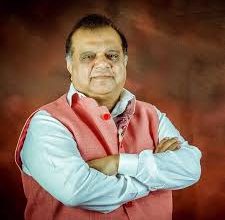It has been an interesting week at the ISSF World Cup in the Capital at the bucolic Karni Singh ranges. The medal rush for India (19 till now) may be tempting to predict the Indian marksmen are going great guns and this sets the tone for the Tokyo Olympics, beginning on July 23.
However, before all that will come the selection committee meeting to pick the final squad for the Olympics. To be fair, the NRAI selection policy is quite clear and there is no room for “making adjustments.”
On has seen in the past, especially before the 2008 Beijing Olympics, there was a lot of heartburn over Col RVS Rathore being picked for the double trap event ahead of Ronjan Sodhi. That, perhaps, was a major blip, at that point of time. However, even in London 2012, despite all the hype, Ronjan was not able to do much in his Olympic debut. The event has been scrapped from the Olympic programme.
In the aftermath post 2016 Rio Olympics, where the Indian shooters drew a blank in the medal tally, there was mayhem at home. So many people connected with the sport were gunning for each other, including the NRAI president Raninder Singh. That a more comprehensive selection policy was drawn out and the “business” of personal coaches messing up with performances was also taken note of.
The “personal coach” practice has not ended yet but there seems better control this time. If there is one good thing which has happened because of the Covid-19 pandemic, it is the “frequent flyer” programme of the Indian shooters and their overseas jaunts ending. What happened before Rio was bizarre and it was hard to fix accountability.
Today, one does not have foreign coaches for every shooting discipline though one must admire the hard work being put in by pistol coach Pavel Smirnov. He keeps quiet, works without craving for publicity and wants people to respect his privacy.
In shotgun, where the much-pampered men trap shooters have been performing below par, they have hit the nadir. The resurrection process is a hard one and grooming new talent is a big challenge. Mansher Singh, the seasoned pro, has been named head coach for shotgun. His responsibility is huge and he says it will take two years to build the team.
The good part is in skeet, which was a poor cousin to trap in the past, marksmen like Mairaj Khan and Anjad Bajwa are working towards the big goal — Tokyo Olympics. The rise of skeet, where young girls are also doing well is a pleasure to watch.
So one may well as what is the bug fuss over selection?
There is a fuss as we still have “camps” which bat for one shooter or the other. Take the case of Elavenil Valarivan, ranked No.1 in air rifle. She shot air rifle mixed gold with another rising star, Divyansh Panwar. It was a good win, though to imagine Elavenil will replace Anjum Moudgil or Apurvi Chandela is wrong.
What one hears from whispers in the corridors of the Karni Singh ranges is there is a plan to ensure Elavenil goes to Tokyo. And this is where the NRAI selection committee and President Raninder Singh will have to show they are fair. To my mind, Elavenil can wait and earn her quota place for the 2024 Olympics. She is being mentored by none other than Gagan Narang and could be a good bet at the Asian Games next year.
To rush Elavenil at this point of time by dropping Anjum or Apurvi would be mean. The Olympic quota winners may have not shot high scores in their events this week in air rifle. However, their overall scores and the system being followed by the NRAI plus pedigree needs to be factored.
In sports pistol, too, the performance shown by young Chinki Yadav on Wednesday was superb as she fired gold. She certainly deserves to be part of the 25-metre event with seasoned Rahi Sarnobat, who win silver. Manu Bhaker won bronze.
In coming days, India could win a quota place in rapid fire pistol men’s event as well and in women’s trap. The marksmen will have to deal with pressure and a reasonably good field in these events.
Till Sunday, you can expect more medals to come in. The big picture is the final squad to be picked for the Tokyo Olympics. Knowing Raninder Singh, who is also the ISSF vice president, he will not get bogged down by lobbying or pressure.
